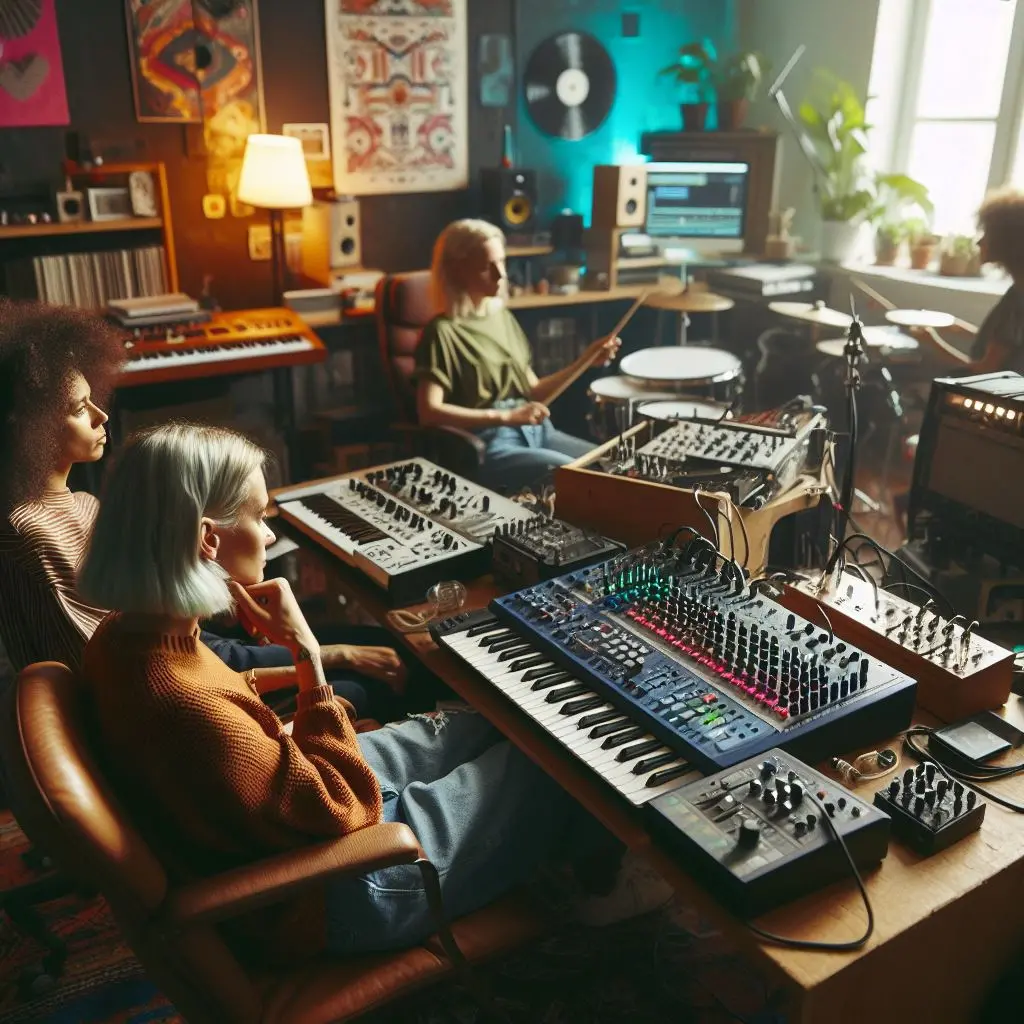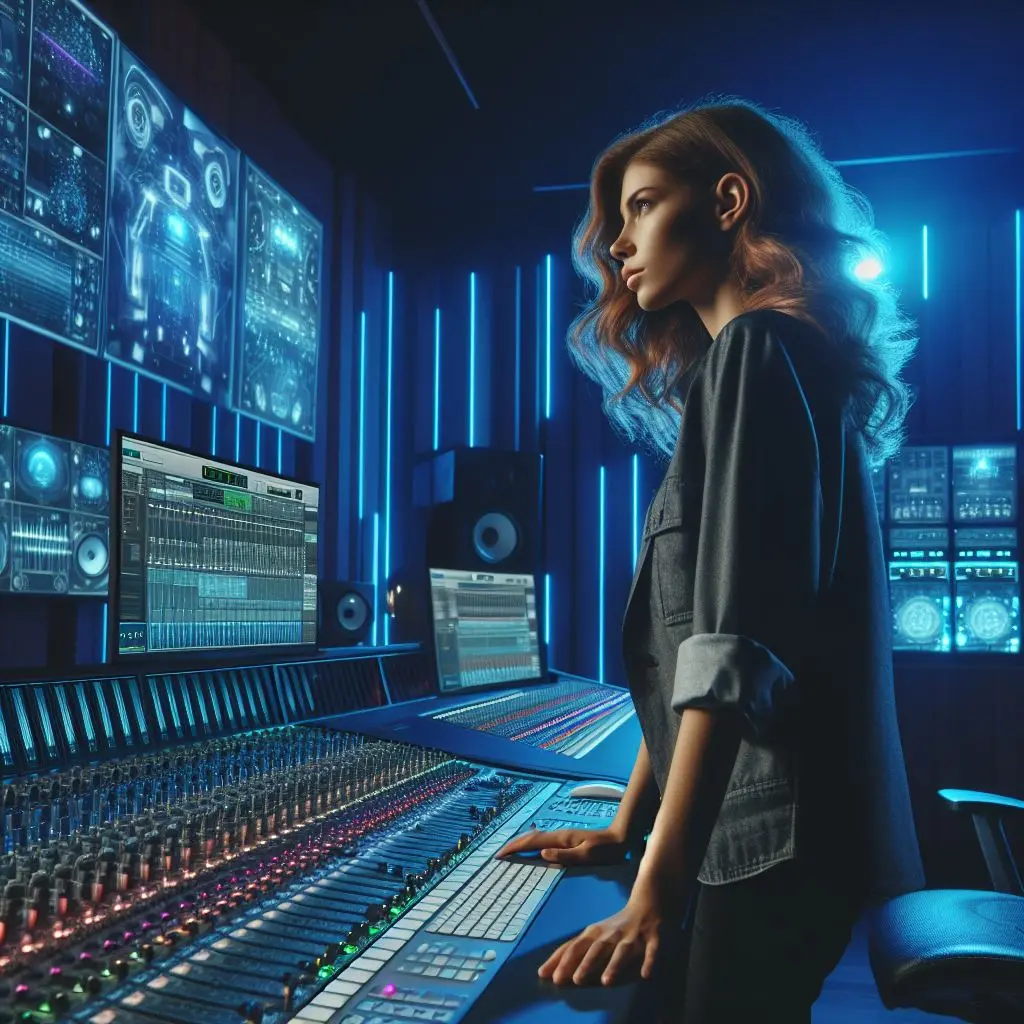The Evolution of Female Producers in Indie Music
Navigating hurdles and celebrating women in music production.
Men have dominated the music industry for decades. One sector where this dominance is almost absolute to this day is music production. According to Statista, only 3.4% of the producers in the United States were women in 2022. That is just unacceptable. We've seen more and more female artists making a name for themselves, but the producers are still far behind.
It's especially annoying because the fight for gender equality has been around for a long time. In this article, I’ll cast us back in time. How did we arrive here, who made it happen, and what can be done next?
The Evolution
In the beginning
When women finally started breaking into the music industry, they did so as artists. One was born with a good voice, after all. Music production, however, was seen as a technical job and out of bounds for women. The first woman to break that was Sylvia Robinson. As an African American woman, she became one of the driving forces behind the development of hip-hop.
She founded Sugar Hill Records alongside her husband and was actively involved in the production of some of the biggest hits of hip-hop in that era. One of such songs is Rapper's Delight.
In those early days, female producers were as scarce as gold. Opportunities for them were even scarcer. Thanks to the work of the pioneers like Sylvia Robinson, a new generation of women was inspired to believe in themselves.
1980s - 1990s
As women flooded the industry, the walls went up. The rulers of the music industry preferred to keep the status quo, but the women weren’t having it. Female artists continued to blossom, but the story for producers remained a bleaker tale. Eventually, the women began to collaborate with each other. Artists like Christina Aguilera and producers like Linda Perry led the effort.
As people like Perry enjoyed success, the belief that production was too technical for women. Younger women began to believe more and more. In those days, however, access to the necessary tools was the problem, but that all changed in the 21st Century.

The 21st Century
The 21st Century saw the arrival of new technology such as DAWs that made tools for music production much more accessible. With no one to stop them, women began to learn more about production and practice. This wasn’t limited only to upcoming producers. Artists began producing some of their own songs. Alicia Keys, Missy Elliot, and Imogen Heap all feature among those women.
That said, the gap remains significant. More and more artists are beginning to speak about it. Some artists like Beyonce and Taylor Swift have made deliberate efforts to add women to their teams. That’s progress, but there are more permanent ways of handling this.
I’ll tell you how I think we can do that, but let’s talk about some notable names in the fight.
Notable Names
Sylvia Robinson
Sylvia Robinson is a legend in the music industry, especially in hip-hop. She co-founded one of the biggest record labels of her time. She also became one of the first female producers in the United States, certainly the first with a hit as huge as Rapper’s Delight.
She was an African-American record label executive and producer. She has been posthumously inducted into the Rock and Roll Hall of Fame. Music, as we know it today, wouldn’t be possible without her.
Ethel Gabriel
Just like Sylvia Robinson, Ethel Gabriel was also a record label executive and producer. She spent 44 years working at RCA Records and produced over 2,500 songs in that time. If you think that’s extraordinary for any producer in any era, you’re absolutely right. She is also the first woman to ever receive an RIAA Gold Record and has seen 6 of her albums win Grammys.
Sylvia Moy
Once upon a time, Stevie Wonder was on the verge of being dropped by Motown. A woman named Sylvia Moy pled his case. She asked for the chance to write him a hit song. She went on to co-write Uptight, and what a hit it was. This incredible woman also wrote and produced songs for big names like Marvin Gaye and Michael Jackson. Without a doubt, she is a notable name in the fight for gender equality.
What else can we do?
The problem is two-fold. Firstly, many women don’t believe they can make it as producers so they don’t even try. Secondly, the ones who do try aren’t given the opportunities to practice and earn doing what they love. How can we fix it?
You can do it
The first step is to convince women that they can do it. If a woman grows up hearing that a task is too technical for her, she might never even attempt it. We must get rid of that completely false mindset. Changing a mindset is easier said than done, but it’s possible.
More importantly, we must save the coming generation of girls from this mindset. Girls should grow up believing that anything is possible.

Opportunities
Once women decide to learn the art of production, they need opportunities to show they can be as good as men. Beyonce and Taylor Swift are doing a noble thing by seeking out female producers, but how many can they help that way? A more effective method would be to encourage the women to set up shop.
The three women we talked about earlier were all label executives. One woman, Cordell Jackson, was rejected by a label and she founded hers. Female producers need to be shown how to carve out their own things as opposed to waiting for jobs to be handed down to them.
Final Thoughts
Female producers are by far the minority, but they’re enough to make an impact. The key to solving any problem is finding the root and attacking it from there. A wrong mindset and lack of opportunities are the main problems, so the answer lies in them.
Think of it this way. What did the pioneering women do to push their way through the male ranks until they were at the top? How can we do that today on a larger scale? If we can figure these out, there’s plenty of hope for the future.
Blog Article Tags
evolution female producers dominated struggle gender equality industryMore Articles
Where To Find Good Indie Music - If you're a long time fan or first time listener of Indie music, we'll show you the best methods for discovering the music you love.
The Effects of Piracy on Artists? - Exploring music piracy: ways, consequences, impact on industry & artists.
The Origins Of The Term "Hip Hop" - We discuss the cultural and artistic elements that make up Hip Hop's origin.
Who Is the King of Indie Music? - Who made the biggest impact as an indie artist? Let's review the kings & queens of indie music.
Are Indie Artists Truly Independent? - Your favorite indie artist blows up out of nowhere & it makes you wonder who's behind them.


